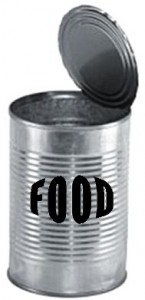Mintel, a global market intelligence company, recently released a study touting growing consumer acceptance of generic brands, private label, and retailer brands. Yet what people say does not always affect what people do.
 The Mintel headline claims “Private label gets a quality reputation, causing consumers to change their buying habits.” The truth is that behavior lags far behind though. Mintel found that 44% of shoppers believe the quality of store brands has improved over the last five years. Only 19% of shoppers believe brands are worth paying more for. Between 56 and 62% of shoppers (depending on category) believe there is no quality difference between name brand and generic brands. If people acted on their beliefs, store brands and generics would have a 30%+ market share in most grocery categories.
The Mintel headline claims “Private label gets a quality reputation, causing consumers to change their buying habits.” The truth is that behavior lags far behind though. Mintel found that 44% of shoppers believe the quality of store brands has improved over the last five years. Only 19% of shoppers believe brands are worth paying more for. Between 56 and 62% of shoppers (depending on category) believe there is no quality difference between name brand and generic brands. If people acted on their beliefs, store brands and generics would have a 30%+ market share in most grocery categories.
Actual sales figures tell a different story. According to Packaged Facts published in Packaging Digest, private label accounts for only 17% of total food and beverage retail sales in the United States. Recession pressures on shopper budgets has driven an increase since 2008 of 7% for food and 1% in beverages, yet generic/private label/retail brand share of market tracks nowhere near shopper opinions. While some categories, like sugar, are perceived as commodities with generics having a greater market share, and other categories, like milk, have few dominant national brands, most categories are still dominated by national name brands.
Marketers know that behavior is only partly driven by stated opinion. Habits, specifics of the situation, other opinions, marketing messages, and dozens of other influences impact buying decisions. Having an increasingly positive opinion about generic brands and store brands does not mean shoppers buy more of them.
